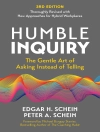Major Barbara Bernard Shaw – Fabian socialist and ardent proselytizer, George Bernard Shaw viewed his role as a playwright as far more than that of an entertainer. His audiences heard fully articulated sermons on moral and economic issues, a potentially dry theatrical experience enlivened by Shaw’s genius for creating vital characters and scintillating dialogue. Major Barbara offers a sparkling example of its author’s unique gift for presenting social theories in an engaging format.The eponymous heroine, an officer in the Salvation Army, is the daughter of Andrew Undershaft, a wealthy armaments manufacturer. When the Army accepts donations from Undershaft and a whiskey distiller, whose money Barbara regards as tainted, she resigns in disgust, but eventually sees the truth of her father’s reasoning that social iniquity derives from poverty; it is only through accumulating wealth and power that people can help each other.
About the author
George Bernard Shaw was an Irish playwright, socialist, and a co-founder of the London School of Economics. Although his first profitable writing was music and literary criticism, in which capacity he wrote many highly articulate pieces of journalism, his main talent was for drama. Over the course of his life he wrote more than 60 plays. Nearly all his plays address prevailing social problems, but each also includes a vein of comedy that makes their stark themes more palatable. In these works Shaw examined education, marriage, religion, government, health care, and class privilege.
An ardent socialist, Shaw was angered by what he perceived to be the exploitation of the working class. He wrote many brochures and speeches for the Fabian Society. He became an accomplished orator in the furtherance of its causes, which included gaining equal rights for men and women, alleviating abuses of the working class, rescinding private ownership of productive land, and promoting healthy lifestyles. For a short time he was active in local politics, serving on the London County Council.
In 1898, Shaw married Charlotte Payne-Townshend, a fellow Fabian, whom he survived. They settled in Ayot St. Lawrence in a house now called Shaw’s Corner.
He is the only person to have been awarded both a Nobel Prize for Literature (1925) and an Oscar (1938). The former for his contributions to literature and the latter for his work on the film ‘Pygmalion’ (adaptation of his play of the same name). Shaw wanted to refuse his Nobel Prize outright, as he had no desire for public honours, but he accepted it at his wife’s behest. She considered it a tribute to Ireland. He did reject the monetary award, requesting it be used to finance translation of Swedish books to English.








